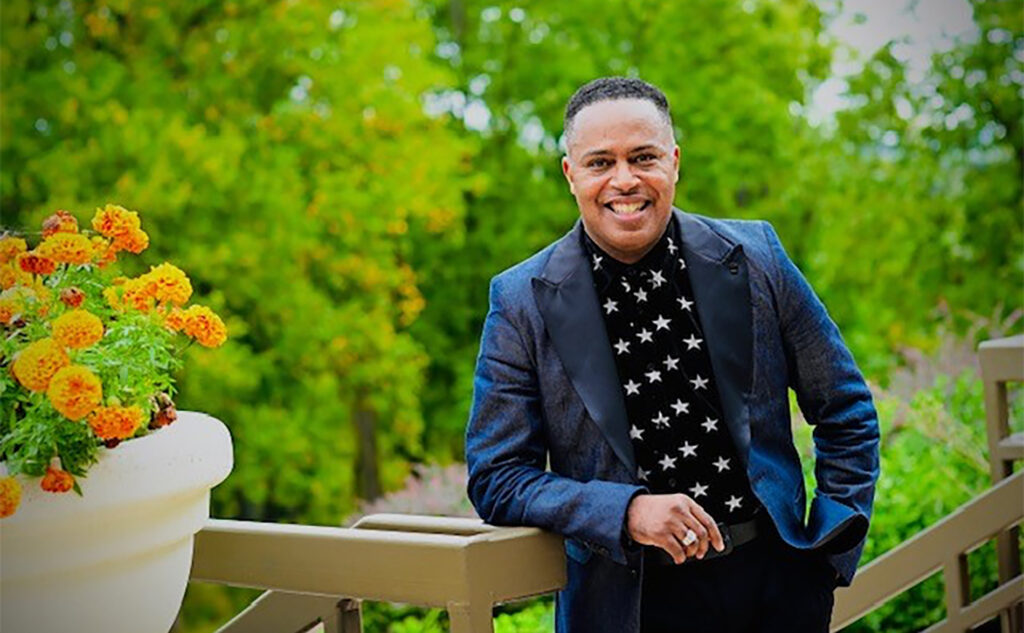A Deeper Understanding: Dr. Calvin Moore, CEO The Council For Professional Recognition

Dr. Moore is an accomplished early education leader with an inspiring vision for a brighter future. Throughout his career, he has held senior roles directing complex public departments at both federal and state levels, while always retaining a focus on improving outcomes for underserved children and families. In addition (after initially gravitating to the early learning field after his time in the Air Force) his experiences include having been a teacher, an
administrator and also an author on the topic of early education. Previously, Dr. Moore was the regional program manager in Atlanta for the Office of Head Start for the U.S. Department of Health and Human Services, where he led the largest region in the country, providing oversight for over 350 Head Start and Early Head Start grantees. Today Dr. Moore is CEO of The Council For Professional Recognition which oversees the CDA credential for early
educators. Dr. Moore holds a bachelor of science degree in early childhood education from the University of Alabama at Birmingham, and a master’s degree in education and a Ph.D. in early childhood education, both from Walden University.
In this lively conversation with host Jeana Ross, Dr. Moore shares his informed and thoughtful perspectives. Describing himself as a “lifelong learner,” Dr. Moore has a passionate and undeniable enthusiasm when it comes to his search for a better tomorrow.
Jeana Ross [00:00:01]:
If more men chose a career in early learning, would it really help out children and families? Dr. Calvin Moore can tell you for sure.
Jeana Ross:
Welcome to Starting At Zero . . . Starting At Zero – imagining a world of high quality education for our youngest citizens. I’m Jeana Ross. As an educator, policymaker, mother and grandmother, it’s my passion to advocate for the futures of our children.
Jeana Ross:
Today, we connect with Dr. Calvin Moore, whose many years in early education have provided him with deep and rich perspectives. Having been a teacher early on, and then later holding senior roles directing federal and state public departments, to also being an author – he has always retained a focus on improving outcomes for underserved children. Today, Dr. Moore is the CEO of The Council for Professional Recognition, which oversees the CDA credential for early educators. Credentials not only help advance careers, but are also understood to help improve quality across early education programs. I hope you’ll come away from our conversation feeling just as I do – that Dr. Moore is one of the field’s most engaging personalities. Hi Dr. Moore, welcome!
Dr. Calvin Moore:
It’s good to see you. Secretary Ross, thank you for inviting me to be part of this podcast.
Jeana Ross:
Dr. Moore, tell us a little about your journey into the early childhood education field. Was there a moment that you decided that’s what you wanted to major in as a young man?
Dr. Calvin Moore:
I always like to joke that my early childhood career almost didn’t happen. It actually was an accident. After serving four years in the Air Force, I came home trying to figure out what I wanted to do with the rest of my life. And my aunt, who was a kindergarten teacher, encouraged me to major in early childhood education. She was an early childhood professional herself and knew about the Head Start program in Jefferson County in Alabama. And she encouraged me to work full time in the Head Start program and go to school part-time to finish my degree. And the rest is history! I don’t know if I’ve ever told you Secretary Ross, but I was a Head Start child myself, and so my family benefited from the program, and I think I stayed closely connected to Head Start over the years, and working with children and families to support them and their development has been a passion of mine since I started my career – and it continues through to this day.
Jeana Ross:
Dr. Moore, you’ve been a teacher, you’ve been able to be an administrator in Head Start programs. You’ve also been director of state division of child care. You are very close to the Alabama pre-K program in understanding how it works. Can you tell our listeners what you see as a thread through all of those?
Dr. Calvin Moore:
What I’ve learned in my experiences is that having someone who has worked in classrooms and worked as a Center Director, I’ve also worked – as you just mentioned – at the state and federal level. What I’ve discovered is that there are people making decisions about young children who have not had those experiences. And so some of those interventions just simply don’t work, or don’t make sense. So I think the benefit of having worked in a classroom myself means that I have a perhaps deeper understanding of what those teachers and practitioners are really going through. And this came to light for me when I started working with family childcare providers, not necessarily because they’re different than teachers in center-based programs, but because they have different things that are important to them, right? So I think having those experiences – those very practical examples of what’s important to a teacher, having been there myself – made a significant difference for me when I was making decisions as an administrator about what’s best for them. Also, it bodes well for me with children and families as well. If you’ve never worked with parents trying to figure out how to work and find quality childcare, then you just don’t understand what it is you need to do for them.
Dr. Calvin Moore:
But having worked with parents in classrooms – supporting them, trying to help them with all the things that they face every day and the importance of having a high quality experience for their children – really pays dividends. So I would encourage administrators, see what you can do to really be on the ground with children and families before you make those vital decisions, because I think that will make a significant difference in your success.
Jeana Ross:
Dr. Moore, what are ways our country can bring more men and women into the early childhood education field? And some of the things that you think are important as to having men in an early childhood education or care setting? What does that look like and what benefit does it have for children and families?
Dr. Calvin Moore:
So, as a man working with young children myself back in 1991, what I learned is that children need to be exposed to or introduced to both men and women caring for them, right? I learned very early on that many of our young children may not have male figures in their lives, at least not as active as a teacher seeing them every day. So I think having men in classrooms really introduces the idea that both men and women can care for young children. I’ve thought a lot about encouraging more men into the field, and I think the first suggestion I would have is to capture them early. I’ve been a big fan of the high school CDA program. You know, when we worked together in Alabama, we both supported the career tech pathway into our field. And so I think that would be my first suggestion is that we start early capturing the imaginations of both young ladies and young men and encouraging them to join our career field. Of course, that won’t work unless we really fix the financing structure of our career. In other words, if we’re going to encourage young people to join our field early, we have to make sure they receive a livable, worthy wage as they enter our field. And I think there are some ways in which we can do that. Universal pre-K, state-funded pre-K across the country has done a really good job of offering them a really solid career pathway, with pay parity with our K-12 counterparts. But I also think that apprenticeship models is another creative idea to attract more people into our field. I also believe that there is some research, fatherhood research and other research that shows having a male figure or a man in the life of a young child really makes a significant difference. I think children who have men actively involved in their lives are more persistent, they stick to it. They often are the ones who graduate high school and go on to college and other post-secondary experiences. And there’s a significant impact on young girls that they delay pregnancy, for example, and they go on to succeed in sports and other extracurricular activities, just by having their fathers involved in their lives. So there is research, but there’s also that anecdotal example that I’ve experienced as a man working in the field that children need to see both men and women caring for them at a young age.
Jeana Ross:
You mentioned universal pre-K and it is being rolled out in many states. Describe to our listeners what you think are the advantages this has for early childhood practitioners. You mentioned the salaries and the pay parity . . . are there other advantages you can see as far as this rollout of universal pre-K for the other years of early childhood?
Dr. Calvin Moore:
I think that universal pre-K has done a lot, as I’ve said, for pay parity, but also for quality. I think having a high quality early childhood experience is critical for children and families. So having the best materials and equipment available to children both inside and outside the classroom, I think is really important. And universal pre-K has done a lot to make sure that they are state of the art classrooms available to families. But I also believe pre-K has done a lot to help support, as we said earlier, this continuous knowledge and understanding of child development for the practitioners, both the lead teacher and the auxiliary teacher. I think making sure that they have professional development experiences that will allow them to really implement a fabulous curriculum is really key. And then one final thing about universal pre k that I really have enjoyed advocating is this focus on the whole child, that it’s not just about the curriculum and what’s going on in the classroom, but making sure that children are well and whole in other ways, whether it’s their social development or their physical development. There are ways that we need to intervene early to help children stay on track in terms of their developmental milestones, and that’s what universal pre-K helps with as well.
Jeana Ross:
Can you talk to us – give us some examples of what some of those early interventions might be?
Dr. Calvin Moore:
Well, I’ve seen personally that teachers may be the first to notice that a child may have a speech impediment or may need some intervention in other ways. They may be the first to understand the child is not growing like their typical peers. And those are ways in which teachers can work with parents to identify those milestones and help children get the interventions that they need early. And, you know, Secretary Ross, the earlier that we can intervene, the more likely we are to be successful and keep children on track developmentally.
Jeana Ross:
Can you talk to us a little bit about maybe a teacher, a model teacher that you observed over the years? (Of course, besides yourself.) What made that teacher special?
Dr. Calvin Moore:
Well, I think there were a number of things, like there are a million little things that might make a teacher really successful. I think it goes to some of their creativity. I remember a teacher that I observed once in a classroom that had really a lot of creative ideas that she deployed. And even my teacher, when I was a teacher assistant, I found that she tapped into what her strengths are, right? So every teacher is different. I think they have to know what their strength is to really make a difference with children and families. And my teacher Mrs. Raspberry was a wonderful storyteller, and she had a way of telling funny and enriching stories for children. And so they were looking forward to storytime in our classroom, and they knew that Mrs. Raspberry was going to tell an exceptional, exciting and engaging story, and that story would be alive every day of that week. So I think that enjoying how teachers bring their personality, their creativity, and their uniqueness to the classroom setting – no matter what curriculum they’re implementing, no matter what materials they have available to them – if they could be creative and authentic in those experiences, the children and the families will come along on that journey with them. And so that’s what I enjoyed seeing, what I would call a “master teacher” practicing their craft in front of a group of children.
Jeana Ross:
So, Dr. Moore, tell us what your strength is as far as in the classroom, as a teacher?
Dr. Calvin Moore:
Well,I think my strength in the classroom was always this ability to let children freely explore. I didn’t necessarily have a schedule that was rigid. I wasn’t concerned about whether the paint was spilled on the table. I really allowed my children to freely explore the classroom and the environment that I was setting up for them. I thought the classroom was an important backdrop to my experience as a teacher, and so I would set the stage for children to fully explore it. And sometimes my center director would come in, and she would think that it was a mess! But I told her that out of this chaos, children were making important connections. And we made sure that we cleaned up the classroom every day. But I wasn’t so concerned about the messes that children would make. I was just concerned about the connections they would make to the world around them. And I was so proud to see them make those connections and not be so concerned about spilling the paint on the floor, or spilling the glue on the table. We’ll clean that up later. I used to always tell my children that – don’t worry about the mess. We’ll clean it up later.
Jeana Ross:
Well, I’ve heard you sing to teachers, and their response to you was just remarkable. And I know you had to have sung to your children. Can you tell us some of the songs you would sing? Because I think, you know, when we sing to children and we bring music into the classroom, we put a song in their little hearts that they can pull up later on in times that might not be so happy when they’re trying to “find their happy.”
Dr. Calvin Moore:
Yes. I think music was a big part of my journey as a teacher. We sang all the time, whether it was the singing the cleanup song: [sings] “Clean up time, clean up time, clean up every day. Oh, how sweet, and oh, how neat our classroom is today . . . .” Yeah, I mean – I think you find a way to connect the singing to what you want the children to experience. And if you could find a really nice clean-up song, whether it was set to the tune of Jingle Bells or Happy Birthday, I think that would be important. And I think music is really vitally important for young children, and that’s why I would always sing to them. Yeah, you either found a big mess in my classroom, or you heard us singing all the time.
Jeana Ross:
Dr. Moore, talk to our listeners about your early childhood education philosophy?
Dr. Calvin Moore:
I think I’m a constructivist by academic preparation. (I attended the University of Alabama at Birmingham.) So I believe children build and construct knowledge as they interact with their environment. So teachers should be providing a lot of hands on experiences with young children. Rich literature, so that language and literacy are an active part of their daily experiences. But I also am a Vygotskian constructivist. I believe that learning and language and culture are interconnected so that children understand where they come from and hopefully where they’re going. And we can support children and families as they make these important connections during the early years of a child’s development. And then finally, I really believe that children and families have to really be connected to what’s happening in the school. So as children grow and learn, our parents should grow and learn a lot about how to support children in the early years. I think with brain development and what we’re learning about young children, this is a very important age. And so parents, as their first teacher, should really be connected to what’s going on in classrooms.
Jeana Ross:
How does someone go about doing that? To make sure that the parent is connected and feels valued and respected – as far as what’s going on in their child’s education or childcare setting?
Dr. Calvin Moore:
I really think it begins with the teacher. So I think teacher preparation programs should really include parent engagement, parent activities, ways in which the teacher can connect the parent to the classroom. And I thought about this a lot when I was working as a teacher. You know, I had teachers tell me all the time: what is your secret sauce? Well, you want to make sure that parents feel welcomed in the classroom. And even if they can’t volunteer – which is the traditional way that we’ve often envisioned parents being engaged – if they can’t volunteer in the classroom, find ways that they can stay connected outside the classroom. Is there an activity they can do at home with their child? Is there something that they can do to help you with that classroom theme for next week? Keeping them connected, making sure they know what’s happening, what’s going on, what meals are going to be served for the week . . . those are ways that parents can be involved. Get their opinion. Ask them what they think about your classroom curriculum. Ask them what they want to do outside of the classroom. Is there a field trip that a parent would like to have the classroom go on? There are ways to keep them connected, and I think we should keep those tricks under our sleeves so that we can pull them out when needed. But finding ways for parents to get involved is the magic sauce.
Jeana Ross:
And sometimes those ways will be as unique as the parents are!
Dr. Calvin Moore:
That’s right. Every classroom has a different group of parents every year. So from year to year, your classroom engagement with parents may be very different.
Jeana Ross:
How does your philosophy influence your practice and policy decisions?
Dr. Calvin Moore:
Well, I think that understanding how children grow and develop is really important. It provides a basis of my understanding of what should be happening in classrooms. And I think staying true to my philosophy has really helped me over time. And being a lifelong learner myself, I think has also been a commitment I’ve made over time as well – so that the more I learn, the more I can grow as a practitioner. And I think I encourage teachers to do that all the time. In the same way, Secretary Ross, that we believe children build knowledge about the world around them, teachers build knowledge about teaching as they gain more experience and really understand what’s happening and staying on the cutting edge of our field. So I’ve always been open to learning and growing as a practitioner, and that’s how I’ve stayed connected to the field and get better over time.
Jeana Ross:
Among your many engagements, you’re an author too. You wrote “Find Your Happy: Seven Steps to a More Fulfilling Life.” And you’re working on a new book about men in early childhood. You shared with us why this is such a meaningful topic to you in the early childhood education field . . . tell us about the process of writing this book?
Dr. Calvin Moore:
Well, you have to write what you’re passionate about. I’ve always done that. And so I start with an idea that I’m really passionate about. “Find your Happy” was really important to me because I believe that you can’t find happy when you get there – you have to be happy on your way. And so I wanted to help people connect with what I discovered as an individual, trying to find meaning out of my life. But also, as you know, I was a young man in 1991 working in a female-dominated profession. I was passionate about encouraging other men to join me on this journey.
Dr. Calvin Moore:
And so that’s been essential. I don’t write about anything that I’m not passionate about because I think if you don’t do that, then you won’t stick to it. Because sometimes it takes you a couple of years to write a book. I didn’t want to spend a decade writing about something I wasn’t passionate about, Secretary Ross – so I always stick to what I really, really am interested in, and what I think will make a difference in our world.
Jeana Ross:
Well, Dr. Moore, I’m a practitioner at heart, and I think you are too, starting on your career as a teacher. I always like to ask my guests what is their favorite children’s book and why?
Dr. Calvin Moore:
That is a difficult question! There are so many that I’m in love with. Of course, my favorite is the “Very Hungry Caterpillar” by Eric Carle. But I also like “Abiyoyo” by Pete Seeger. And perhaps the one that I’m reading the most right now to my nieces and nephews is “Where The Wild Things Are” by Maurice Sendak. And you know that story, I’m sure, Secretary Ross – it’s about a child who’s mischievous. He’s not understood at home, at school, but he escapes to a wonderful island where there are these majestic beings where he can have fun, as young children like to do. So I think that’s the one that’s my favorite right now.
Jeana Ross:
You know, I’m reading a biography of C.S. Lewis, and he talks about some of those same types of escape that young children have. And a lot of it is just connected with nature. And I do think that’s important for young children to somehow appreciate nature and be able to spend time outside in nature, and doing those sorts of things that we were able to do as young children – to run barefoot and to pick up the moss. And I think he mentions a brother that took a biscuit tin, which I think we call a “cookie tin top”? And creating a garden from moss and little twigs and things. And, you know, how important that is for young children – to be able to have those types of experiences, and just times that they’re not just in a very structured setting in school. And that book “Where The Wild Things Are” reminds me of that.
Dr. Calvin Moore:
Absolutely.
Jeana Ross:
What can listeners do today to bring a sense of urgency – locally and nationally – concerning the importance of the early childhood work as researchers, policymakers and practitioners?
Dr. Calvin Moore:
Well, I think we all have to work together. I think we have to view early childhood education as a public good . . . that every child, no matter what their zip code is, deserves the very best early experiences . . . whether it’s Head Start, state pre-K, Early Head Start, or other intervention programs. Children need a really, really good start, and so do our parents. And so I think that if we can view it as a public good, and make those investments, I think we can follow the recommendations of policymakers to make a difference in the lives of young children and their families. And I think that’s how we create this urgency in our communities. I believe it’s grassroots. I think we have to start on the ground in communities to build this kind of advocacy. But we can do it. Most people that I talk to in my community understand how important the next generation is. They want to do something to improve all of the investments that we’ve made and maybe improve those investments over time. I think it’s communication, but more importantly, it’s to view it as a public good.
Jeana Ross:
Dr. Moore, can you tell listeners how they can find you and connect with you?
Dr. Calvin Moore:
Yes, if you want to get in touch with me, I am the CEO of The Council for Professional Recognition. My email address is: calvin m at cdacouncil dot org. I’d love to hear from your listeners about any suggestions or questions they may have about the work we’re doing at the council.
Jeana Ross:
Do you have any calls to action that you’d like to share with our community?
Dr. Calvin Moore:
Well, I have one call to action: support early childhood education. Wherever you are, do what you can to lift up the amazing work that practitioners are doing all over the country to support children and families, children ages birth to five. I’m supporting those practitioners, and I hope that everyone listening to this podcast will do what they can to support them as well.
Jeana Ross:
Thank you, Dr. Calvin Moore.
Dr. Calvin Moore:
Thank you, Secretary Ross.
Jeana Ross:
Starting At Zero . . . imagining a world of high quality care, education, and success for our youngest citizens. Please visit at: startingatzeropodcast.com. You can check out more episodes, and also subscribe. On the website, you’ll find links mentioned in the episode, along with transcripts, show notes, as well as exclusive materials shared by today’s guest. You’ll also find the video version of today’s episode. That’s startingeropodcast.com. If you found our insights on early childhood education valuable, we’d be thrilled if you could take a moment to leave a review. Your feedback not only supports our podcast, but also helps us spread the word about the importance of early education. Connect with me on Twitter and Instagram, at saul_zaentz. And I’m Jeana Ross on LinkedIn. I cannot wait to share our next conversation with you and imagine a future where every child finds early success.
Learn More About Our Work
Feedback & Contact
Copyright © 2024. Starting at Zero Podcast and the Saul Zaentz Charitable Foundation™. All Rights Reserved. Site Design: Chair 8 Design.





